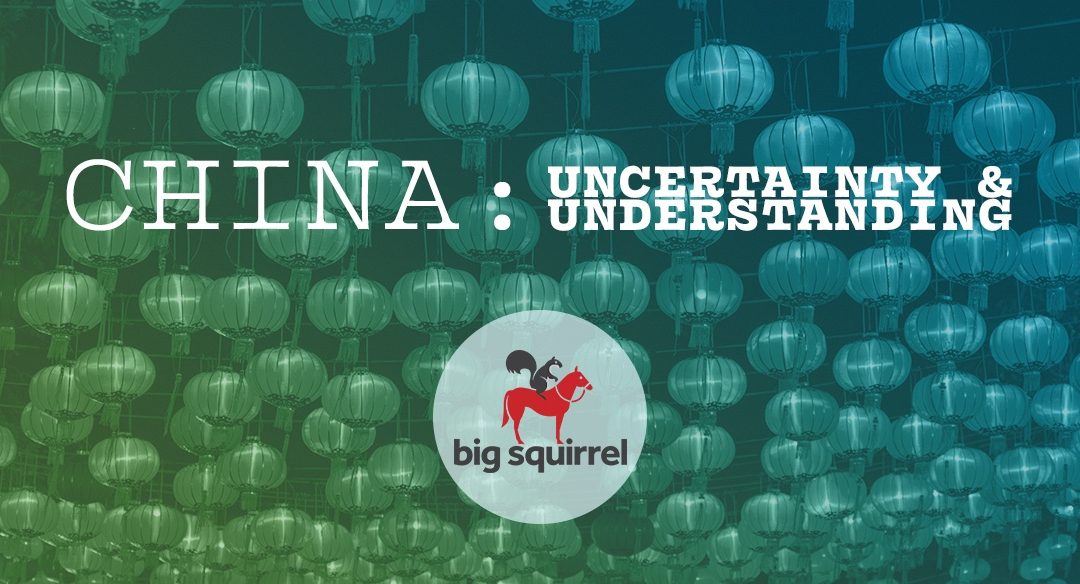
China : Uncertainty & Understanding
China is a dynamic and rapidly changing country. Steeped in tradition but with an emerging openness to western values like creativity and individualism, China is at a cultural crossroads.
Last year we explored the cultural nuances and behavioral subtleties of China with Johnson’s Baby brand and this year, through our current and ongoing work with Samsung, we’ve been examining the evolving values of Chinese consumers and consumers around the world. From this work, we’ve gained some insights that we believe are important for any brand, company, or even individual to consider if they want to engage and explore this powerful and enigmatic market.
SEEKING THE BEST
As a culture, China seeks the best. To be the best, to buy the best, to make the best decisions. However what is “the best” is becoming more and more uncertain.
Today, as modern influences permeate the culture, tradition is being called into question and the traditional “black and white” perspective of what is right and what is wrong is no longer clear. The desire to have and be the “best” has become increasingly harder to define.
China’s newly elected leader, Xi Jinping expressed the desire for the best when he described the Chinese people:
Our people have an ardent love for life. They wish to have better education, more stable jobs, more income, greater social security, better medical and health care, improved housing conditions and a better environment. They want their children to grow well, have ideal jobs and lead a more enjoyable life. To meet their desire for a happy life is our mission. Source: China Daily
FEAR OF FAKES
The resounding number of counterfeit and imitation products (often containing harmful ingredients) in the Chinese market has forced consumers into a pattern of fear-based decision making.
And no category is immune –– from fake eggs, to fake BMWs, to fake wine, to fake Apple Stores, China is littered with knock-offs. Fear of buying a fake is huge barrier to purchase as consumers feel they can’t trust the brands, products, and companies around them.
In the next few years, gaining the trust of the Chinese consumer will be critical for all brands and businesses. How trust can be established and what it takes to maintain it will require more than just solid product offerings. For those local legacy brands and few Western brands that have established trustworthy relationships with Chinese consumers, maintaining those relationships with openness will be key.
OPTIMISTIC OUTLOOK
Despite widespread mistrust of brands and products, Chinese consumers have a surprisingly optimistic outlook.
Women in particular believe their lives are much more independent and full of opportunity compared to their mothers. They recognize that they are changing, their culture is changing, and how they live is changing. It is an exciting time for women in China and they seem to embrace this evolution with a sense of optimism and hope.
Just recently, Liu Yandong was appointed as one of China’s four new vice premiers, making her the most powerful woman in the Chinese government (and one of the most powerful women in the world).
As China continues to embrace women in leadership roles and as the country defines the Chinese Dream, brands and businesses need to better understand the changing role of women and the influence an emerging sense of optimism will have on consumer behavior, attitudes, and aspirations.
INDIVIDUAL INTERESTS
Social media sites like Weibo have opened China up to global influences and have given China, a traditionally collectivist culture, a means of expressing individual voices, interests and personal preferences.
With a growing focus on Western values, China has become the worlds largest source of students studying overseas in search of an education with a greater focus on creativity and individual contribution. According to statistics from the Chinese Ministry of Education, nearly 400,000 Chinese students studied abroad in 2012, a number that was up more than 17% from 2011.
Though there is a growing interest in individualism, Chinese society is still heavily influenced by the intricate and complicated concepts of mainzi (face) and guanxi (relationships and networks). The key for brands and businesses will be to help the young Chinese consumer pursue their individual interests and construct modern, cosmopolitan identities while at the same time, honor the deeply rooted constructs of traditional Chinese society.